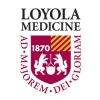Healthy Eating Habits: Best Dietary Choices for Heart Disease Prevention
- 1. The Importance of a Heart-Healthy Diet
- 2. Foods to Embrace for Heart Disease Prevention
- 3. Foods to Avoid for Better Heart Health
- 4. Real-Life Story: How Diet Helped Prevent Heart Disease
- 5. Easy Tips for Incorporating Heart-Healthy Foods into Your Diet
1. The Importance of a Heart-Healthy Diet
Heart disease remains one of the leading causes of death worldwide, but the good news is that many risk factors can be controlled through proper diet and lifestyle changes. A heart-healthy diet is one of the most powerful tools in preventing heart disease. By choosing the right foods, you can improve blood circulation, reduce cholesterol, and maintain healthy blood pressure—all essential components of heart health.
Dietary choices directly affect cholesterol levels, blood pressure, and the overall function of the heart. A balanced, nutrient-dense diet not only provides essential vitamins and minerals but also helps regulate inflammation, which is often linked to cardiovascular problems. Many people do not realize that by simply changing what they eat, they can significantly reduce their risk of heart disease.

2. Foods to Embrace for Heart Disease Prevention
When aiming to prevent heart disease, certain foods should be prioritized to protect your heart. Here are some of the most effective dietary choices for heart disease prevention:
- Fruits and Vegetables: High in antioxidants, fiber, and essential vitamins, fruits and vegetables help lower blood pressure and cholesterol levels. Aim for a variety of colors in your meals, as different colors offer unique health benefits. Leafy greens like spinach and kale, as well as fruits like berries, oranges, and apples, are especially heart-healthy.
- Whole Grains: Whole grains such as brown rice, oats, quinoa, and whole-wheat bread are packed with fiber, which helps reduce bad cholesterol (LDL) levels. Fiber also aids in weight management, an important factor for heart disease prevention.
- Healthy Fats: Instead of saturated fats found in animal products, incorporate heart-healthy fats like those found in olive oil, avocado, and nuts. Omega-3 fatty acids, found in fatty fish like salmon, mackerel, and sardines, are also excellent for lowering inflammation and improving cholesterol levels.
- Legumes and Beans: These plant-based protein sources are rich in fiber, potassium, and folate, which help reduce blood pressure and maintain healthy cholesterol levels. Incorporating more beans, lentils, and chickpeas into your diet can offer substantial heart health benefits.
- Low-Fat Dairy: Opting for low-fat or fat-free dairy products, such as yogurt and milk, can provide essential calcium and vitamin D without the added saturated fat that can contribute to heart disease.
3. Foods to Avoid for Better Heart Health
Just as certain foods promote heart health, there are others that should be limited or avoided to reduce your risk of heart disease. These foods contribute to higher cholesterol, increased blood pressure, and inflammation, all of which strain the heart. Here are some dietary choices to be cautious of:
- Trans Fats: Found in many processed foods, such as baked goods, snack foods, and margarine, trans fats significantly increase the risk of heart disease by raising LDL cholesterol and lowering HDL (good) cholesterol.
- Saturated Fats: Foods high in saturated fats, such as fatty cuts of meat, full-fat dairy products, and fried foods, should be limited. These fats contribute to the buildup of plaque in the arteries, leading to a higher risk of heart attack and stroke.
- Excessive Salt: Too much sodium can elevate blood pressure, putting extra stress on the heart. Processed foods, canned soups, and salty snacks are often high in sodium. Instead, season meals with herbs and spices to reduce sodium intake.
- Refined Sugars: Diets high in sugary foods and drinks can lead to weight gain and insulin resistance, both of which are risk factors for heart disease. Reducing your intake of sugary snacks, sodas, and desserts is important for maintaining heart health.
4. Real-Life Story: How Diet Helped Prevent Heart Disease
One inspiring example of how diet can impact heart health comes from the story of Mark, a 55-year-old man who had been struggling with high cholesterol and high blood pressure for several years. After a routine checkup, his doctor informed him that he was at high risk of heart disease if he didn’t make changes to his lifestyle.
Mark decided to take control of his health by adopting a heart-healthy diet. He started by reducing his intake of processed foods, saturated fats, and added sugars. Instead, he incorporated more whole grains, fruits, vegetables, and lean proteins into his meals. Within a few months, Mark saw a significant reduction in his cholesterol and blood pressure levels. His doctor was impressed by the positive changes and commended Mark for his commitment to heart health. This real-life example underscores the importance of dietary choices in preventing heart disease and improving overall health.
Atlanta Heart Specialists
atlanta heart specialists
4375 Johns Creek Pkwy #350, Suwanee, GA 30024, USA

5. Easy Tips for Incorporating Heart-Healthy Foods into Your Diet
Making heart-healthy dietary changes doesn’t have to be overwhelming. Here are some simple tips for getting started:
- Plan Your Meals: Plan your meals in advance to ensure you’re getting a variety of heart-healthy foods. Include plenty of fruits, vegetables, and whole grains in your meals, and try to limit processed foods.
- Snack Smart: Choose heart-healthy snacks, such as nuts, seeds, and fresh fruit, rather than chips or sugary treats.
- Cook at Home: Cooking at home gives you control over the ingredients you use. Use olive oil or avocado oil instead of butter, and choose lean protein sources like chicken or tofu.
- Stay Hydrated: Drink plenty of water throughout the day, and limit sugary beverages like soda. Herbal teas can also be a great alternative.
By adopting these tips and focusing on heart-healthy food choices, you can significantly improve your heart health and lower your risk of heart disease.
If you're interested in learning more about how to make heart-healthy choices, or if you’re looking for heart-healthy recipes and products, consider visiting our website for expert advice and recommendations tailored to your needs.





















Deborah Heart and Lung Center
deborah heart and lung center
200 Trenton Rd, Browns Mills, NJ 08015, USA